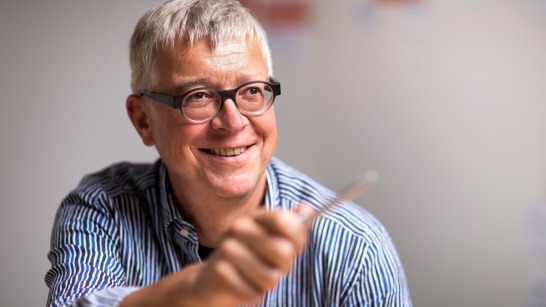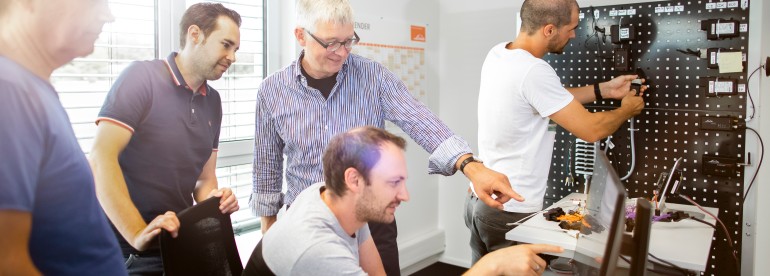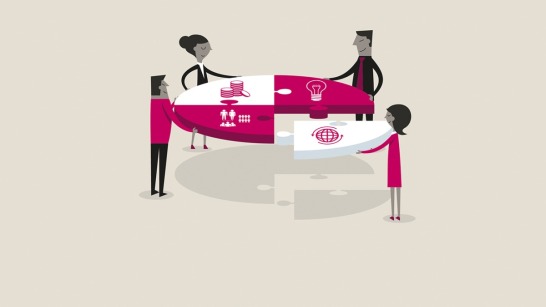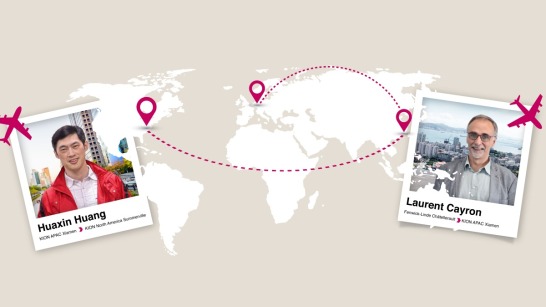"Technology has always fascinated me," notes Wenzel. As a child, he was fascinated by all kinds of vehicles including Daimler’s Unimog all-wheel truck and he began working on bicycles at an early age. It was only natural then that he eventually studied mechanical engineering. When he later applied to Linde Material Handling, his fascination with machines and technology once again came into play: "I was the kind of guy who was always tempted to test things on forklift trucks and try to improve them.”
Wenzel was also very interested in new ideas; sometimes with an astonishing foresight from today's point of view. He dedicated his doctoral thesis to endless fiber-reinforced plastics, such as carbon, which is a composite material that can achieve the extreme strength found in metals, but scores with the lightness of plastics. "The technology for carbon was still in its infancy back then," notes Wenzel. The challenge and opportunity for plastics lies in arranging the fibers in such a way that they are resilient and can withstand high load capacities. Wenzel was keen to research how the material could be used for technological applications. Today, plastics are critical in the lightweight construction of e-cars and other trending applications where their unique properties can be beneficial. Coincidentally, Wenzel's research at the time benefited from another technological development that was also taking off: computers.
Rapid development of PCs
"The calculations and simulations for carbon fibers are very complex," explains Wenzel. Just a few years ago, information technology would not have been able to do this, and PhD student Wenzel took advantage of the new options suddenly open to him. It was a time when computers were everywhere including office workstations, but people preferred going to the university computer labs for a fast Internet connection, where the Internet could be accessed without the croaking sounds of the modem. "It was a time of rapid development," recalls Wenzel, adding, "When I began my studies a few years earlier, the first PCs on the market were very expensive. And then suddenly, a few years later, we could access all of our library knowledge with the touch of a button."
That was what shaped Wenzel. A few years later, when networking and fleet management found their way into intralogistics, he immediately made the connection. "Logically, we didn't have our own department for this initially since it was a completely new area," he says. Though the importance was recognized early on, in practical terms, the composite material competed with numerous other improvements to the vehicle; at times, it was also neglected as a result. "We then sat down together and set up our own unit," says Wenzel. He was instrumental in establishing "Connected Solutions" as an official team even though he still doesn't see himself as an IT professional. "An engineering education helps you to gain a certain understanding of technology," says Wenzel. The Connected Solutions unit was deliberately designed to be interdisciplinary: Development, marketing and sales were all represented.




